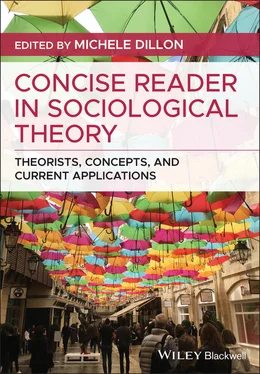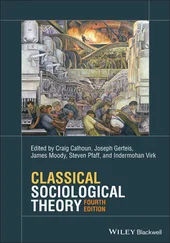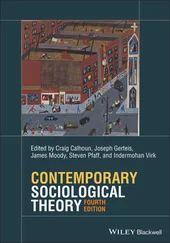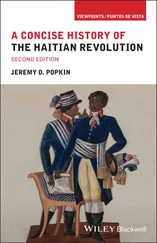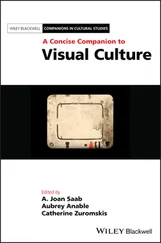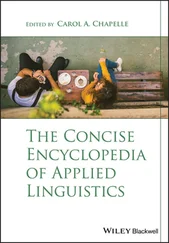This cohesion is the social solidarity that, for Durkheim, is the outcome variable to be explained by sociological analysis; solidarity is dependent on several interrelated structural factors that variously impact the level of social integration in any given community at any given time. The first excerpt included here, The Rules of Sociological Method , encapsulates Durkheim’s understanding of the constraining and thus the cohesion‐imposing force of society on the individual. His opening sentences, about family roles, for example, or the kind of currency used for transactions cogently capture how society imposes itself as an objective and external reality to which we must adhere. The ways of acting, thinking, and feeling in a given community/society are social phenomena, or social facts, structured into society and external to and constraining of any and all individuals. These ways of being may seem natural and spontaneous to a given individual but they are inscribed into the collective conscience, and their socially constraining or controlling force is keenly felt especially when we step out of line. The job of the sociologist is to describe these ways of being – these externally imposing social facts or social phenomena – and, impartially, without assumptions, analyze and explain their consequences on other social facts/social phenomena. And if we follow Durkheim’s rules as outlined in this excerpt, we will be doing precisely what all quantitative sociologists do today in their research studies, especially those who gather and use survey data – they define or operationalize a concept (e.g., social belonging), empirically assess or measure its prevalence in a given society/community/university campus, and examine its relation to other sociological variables (e.g., whether one is a member of an organized social group on campus, whether one is a first generation student, whether one seeks psychological or behavioral health counseling). This is what it means, as Durkheim advises, to treat social facts as things.
Durkheim himself modeled what is entailed in sociological analysis in his own quantitative study of Suicide (the second excerpt included here). Typical of the sociological paradigm, Durkheim defined suicide as a social or collective societal fact – not merely an outcome associated with an individual – and he examined how other social variables impact suicide rates. The variables informing his analysis – fully in line with his theoretical understanding of society as being external to the individual – focus on social structures and forms of social organization that mediate between the individual and the larger society and, as such, constrain or attach the individual to something beyond the self; in other words, the circumstances and factors that tie the individual to others and oblige consideration of their needs. As a sociological variable, suicide varies by social and organizational context. Settings and circumstances that foster a healthy amount of integration decrease the tendency toward suicide, while circumstances with little or indeed too much group integration increase its likelihood. As Durkheim documents, married people and those with children – because of the obligations, expectations and constraints imposed in such relationships – tend to have lower rates of suicide. And Catholics have a lower incidence of suicide than Protestants. This is not because of differences in religious beliefs about the afterlife, but due to the structural organization of Catholicism which is more hierarchical and communal and thus more constraining of individuals than is Protestantism. Any time a community is disrupted, and its norms and ways of acting, thinking and feeling are undermined as, for example, when there is economic upheaval, a tragedy, or a natural disaster, the resulting anomie unmoors individuals, and tendencies toward social disintegration loom more intensely, thus increasing suicide rates (or other indicators of stress/social disintegration). Yet, as the same time, social upheaval – a major tragedy, for example, or war, may have the effect of bringing people, including strangers, closer. This is because, as Durkheim argues, individuals are inherently social beings and in modern society, which not only is highly individualistic but which in fact requires and rewards individualism and a certain egoism, individuals still need to be connected with others, integrated with others into a community of solidarity.
Accordingly, any community or society needs to (and does) come together, to publicly assemble in ritualistic ways on a regular basis (see The Elementary Forms of Religious Life , not included). Collectively shared rituals function to reinforce and to regenerate the bonds that necessarily tie individuals into something larger than themselves. This is the thoroughly social function of funerals: the individuals present – the community ‐ mourn the loss of a beloved family member or friend but also unify around and find comfort in their shared ties (however weakly they might overlap) to the deceased person and to the community at large; and this is what similarly happens at public memorials whether they emerge spontaneously in response to unexpected tragedies or they are elaborately planned for deceased presidents and other celebrities. Indeed, for Durkheim, ritual is at the core of social life; it’s the basis of society, of collective life. And the core function of all rituals, including holiday celebrations such as Thanksgiving, Christmas, or Rosh Hashanah, and of sports events, is to bring people together, and in the collective assembling to reaffirm the interdependent ties that bind individuals, including strangers, to each other. Robert Bellah (1967), a Durkheimian sociologist, coined the term civil religion to capture the functional necessity of routine civic rituals and social assemblies as a way to unify individuals in a culturally pluralistic and diverse society. As he succinctly notes, in the “process of ritual interaction the members of the group, through their shared experience, feel a sense of membership, however fleeting, with a sense of boundary between those sharing the experience and all those outside it; they feel some sense of moral obligation to each other…”, itself further charged by the moral force of the collective emotion propelling and derived from the interaction (Bellah 2003:32).
1 Bellah, Robert. 1967. “Civil Religion in America.” Daedalus 96: 1–21.
2 Bellah, Robert. 2003. “The Ritual Roots of Society and Culture,” pp. 31–44 in Michele Dillon, ed. Handbook of the Sociology of Religion. New York: Cambridge University Press.
3 Durkheim, Emile. 1893/1984. The Division of Labour in Society. Introduction by Lewis Coser. Trans. W.D. Halls. New York: Free Press.
4 Durkheim, Emile. 1912/2001. The Elementary Forms of Religious Life. Trans. Carol Cosman. Oxford: Oxford University Press.
2A Emile Durkheim from The Rules of Sociological Method
Original publication details: Emile Durkheim,The Rules of Sociological Method , edited by Steven Lukes, translated by W.D. Halls, pp. 50–53, 59, 69–70, 72–76. Free Press, 1982. Reproduced with permission of Simon & Schuster.
When I perform my duties as a brother, a husband or a citizen and carry out the commitments l have entered into, I fulfil obligations which are defined in law and custom and which are external to myself and my actions. Even when they conform to my own sentiments and when I feel their reality within me, that reality does not cease to be objective, for it is not I who have prescribed these duties; I have received them through education. Moreover, how often does it happen that we are ignorant of the details of the obligations that we must assume, and that, to know them, we must consult the legal code and its authorised interpreters! Similarly the believer has discovered from birth, ready fashioned, the beliefs and practices of his religious life; if they existed before he did, it follows that they exist outside him. The system of signs that I employ to express my thoughts, the monetary system I use to pay my debts, the credit instruments I utilise in my commercial relationships, the practices I follow in my profession, etc., all function independently of the use I make of them. Considering in turn each member of society, the foregoing remarks can be repeated for each single one of them. Thus there are ways of acting, thinking and feeling which possess the remarkable property of existing outside the consciousness of the individual.
Читать дальше
